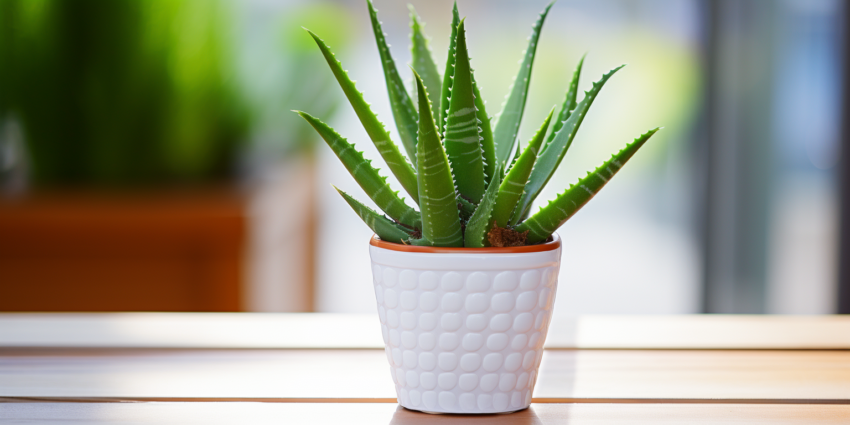Aloe vera is a succulent plant that has been used for centuries for its medicinal and cosmetic properties. The gel inside the leaves of the aloe vera plant is rich in vitamins, minerals, and other beneficial compounds that have a wide range of health benefits.
If you have an aloe vera plant, there are a few fascinating things you may not know about it. Here are 7 fascinating things everyone with an aloe vera plant needs to know:
- Aloe vera is not a cactus.
Aloe vera is often mistaken for a cactus, but it is actually a succulent. Succulents are plants that store water in their leaves, which allows them to survive in dry conditions. Cacti are also succulents, but they have spines that help protect them from predators. Aloe vera does not have spines, so it is safe to touch.
- Aloe vera is 95% water.
The gel inside the leaves of the aloe vera plant is about 95% water. The remaining 5% is made up of vitamins, minerals, and other beneficial compounds. These compounds include vitamins A, C, E, and B12, as well as minerals like calcium, potassium, and magnesium.
- Aloe vera has been used for centuries for medicinal purposes.
The medicinal properties of aloe vera have been known for centuries. The gel inside the leaves has been used to treat a variety of health conditions, including burns, cuts, sunburn, and skin infections. Aloe vera is also a good source of antioxidants, which can help protect the body from damage caused by free radicals.
- Aloe vera can be used topically or internally.
The gel inside the leaves of the aloe vera plant can be used topically or internally. When used topically, the gel can help to soothe and heal the skin. When taken internally, aloe vera can help to boost the immune system, improve digestion, and relieve constipation.
- Aloe vera is a good source of antioxidants.
Antioxidants are substances that can help protect the body from damage caused by free radicals. Free radicals are unstable molecules that can damage cells and DNA. Aloe vera is a good source of antioxidants, including vitamins A, C, and E.
- Aloe vera can help to boost the immune system.
The immune system is the body’s defense system against infection. Aloe vera can help to boost the immune system by increasing the production of white blood cells. White blood cells are responsible for fighting off infection.
- Aloe vera can help to improve digestion.
Aloe vera can help to improve digestion by increasing the production of digestive enzymes. Digestive enzymes are responsible for breaking down food so that it can be absorbed by the body.
If you have an aloe vera plant, you can enjoy the many health benefits of this amazing plant. Use the gel topically to soothe and heal the skin, or take it internally to boost the immune system, improve digestion, and relieve constipation. Aloe vera is a versatile plant that can be used for a variety of purposes.
Here are some additional tips for caring for your aloe vera plant:
- Aloe vera plants prefer bright, indirect sunlight.
- Water your aloe vera plant when the soil is dry to the touch.
- Aloe vera plants do not need to be fertilized often.
- Aloe vera plants can be propagated from leaf cuttings.
With proper care, your aloe vera plant will thrive for many years to come.

